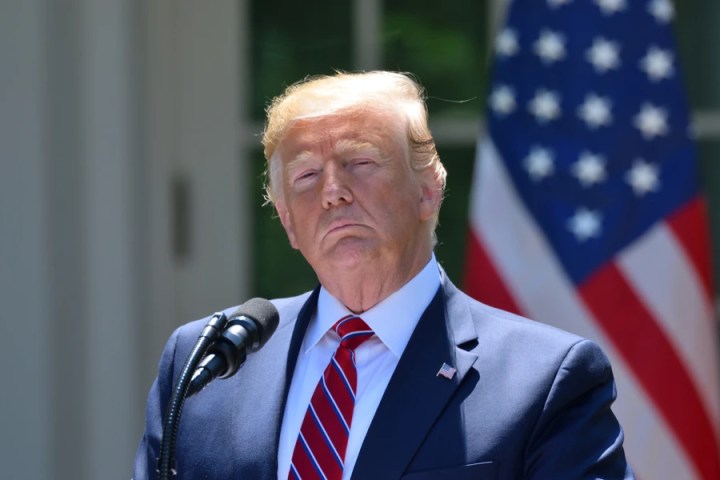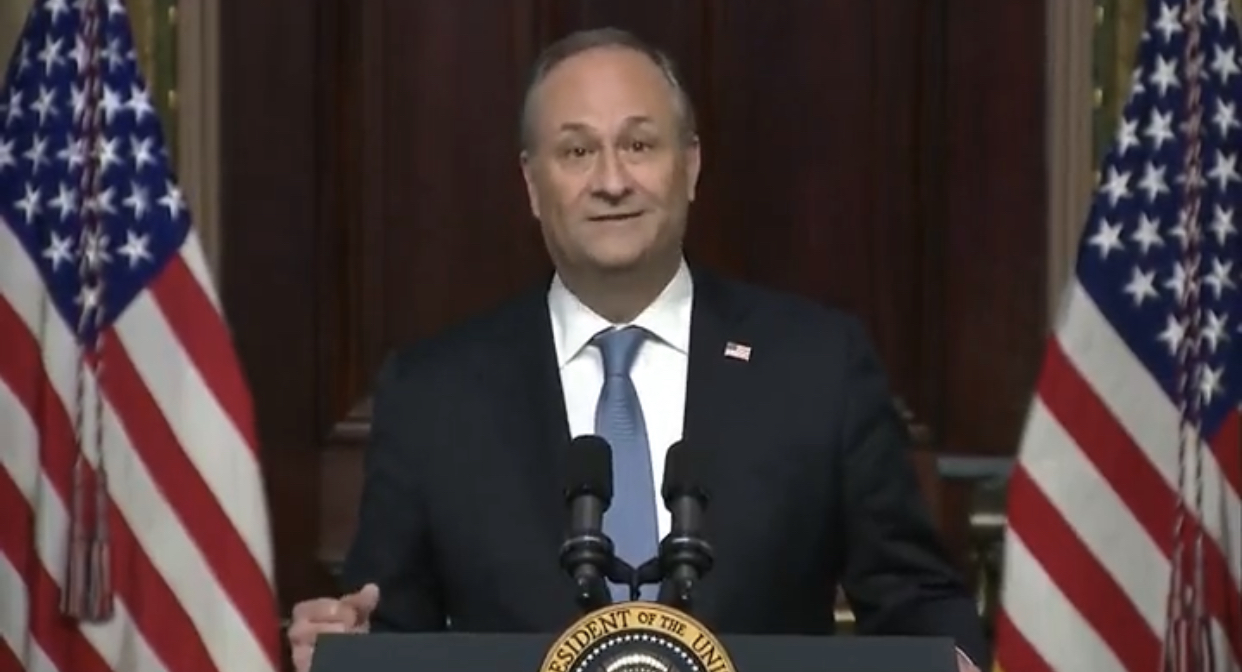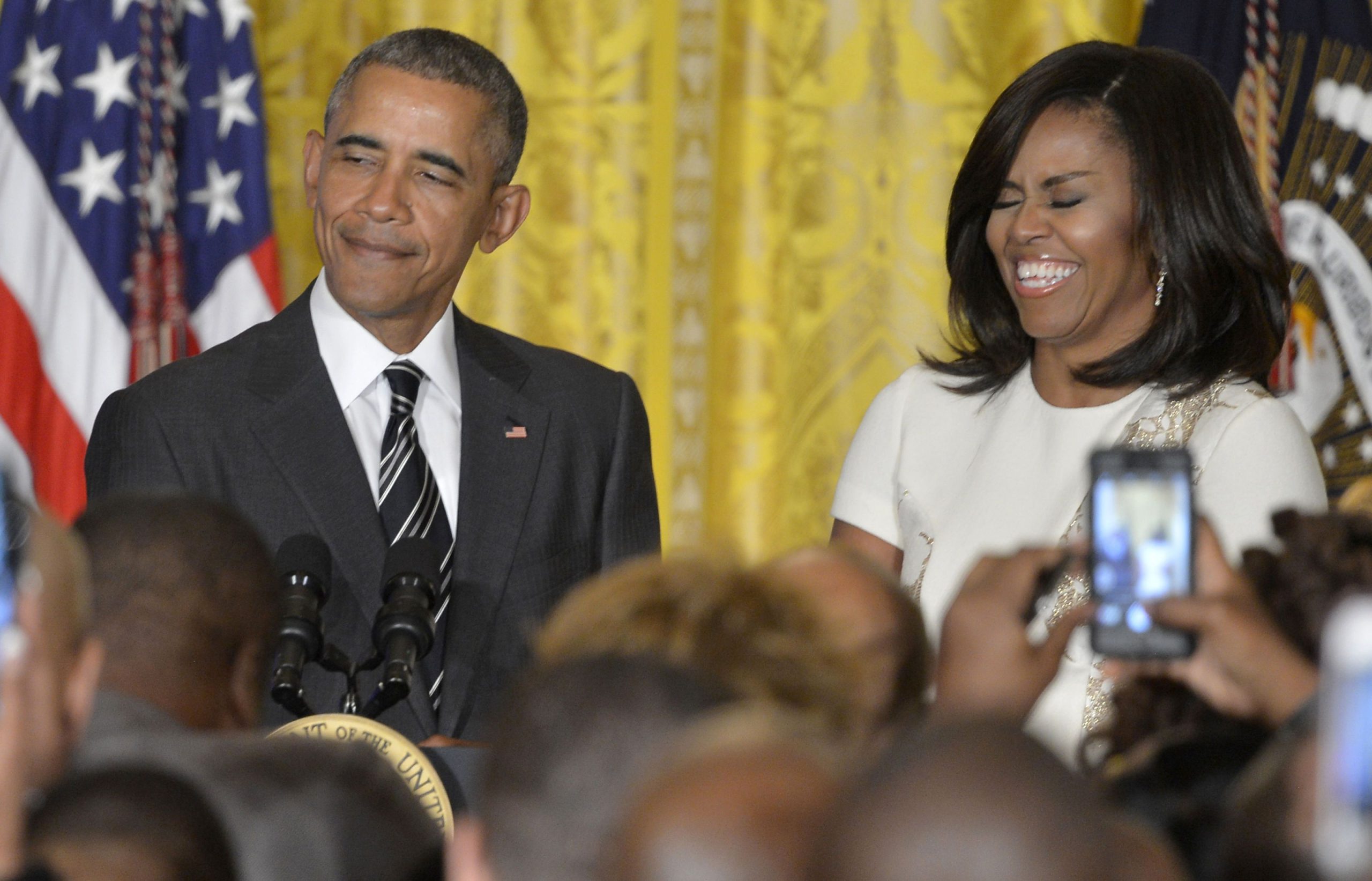
Trump’s creaking Cabinet — and how much it could hurt him
It has been exactly one month since Donald Trump was elected president again, and he appears to be on the verge of something historically dubious: seeing two of his picks for marquee Cabinet posts go down in flames. This despite them needing only Republican votes.
Defense secretary pick Pete Hegseth appears to be severely endangered as Republicans, including Sen. Joni Ernst (R-Iowa), have balked at him. Hegseth, a former Fox News host, faces allegations of alcohol abuse, abusing women and financial mismanagement. Hegseth has denied these allegations, and allies have cited the anonymous sources behind many of them. But the situation is such that the Trump team is considering alternatives.

That would be highly unusual. The emerging question is what that says about Trump’s political capital, with still a month and a half until he’s actually sworn in.
Trump came into office triumphant and claiming a huge mandate to do drastic things, and already we’re seeing his agenda thwarted by his own party in high-profile ways.
Let’s start with the precedents. Newly elected presidents have seen their Cabinet picks fail, but generally not for two marquee posts, and generally not this quickly.

President Joe Biden lost his pick to run the Office of Management and Budget in 2021, and Trump and George W. Bush lost labor secretary nominees early on. Barack Obama also saw two separate picks for commerce secretary withdrawn (one of them over political differences rather than scandal), as well as a withdrawn pick for health and human services secretary. But none of these posts are on par with attorney general or defense secretary.
To get close to what we’re witnessing today, you’d have to go all the way back to 1993, when two of Bill Clinton’s initial picks for attorney general withdrew. (Both, as it happens, withdrew over something that might seem rather quaint today: hiring undocumented workers).
And then in 1989, George H.W. Bush’s pick for defense secretary lost an actual floor vote, amid allegations eerily similar to some of those leveled against Hegseth.

Of the withdrawn nominees mentioned above, only two were out before the incoming president took office.
Which brings us to what this means. There is no doubt that having his top Cabinet picks struggle — and be resisted by his own party — is a bad sign for Trump, but the question is how bad?
Trump clearly challenged his party with unorthodox early picks, perhaps reasoning that if they didn’t work out, they could be quickly and simply replaced. He promptly substituted former Florida attorney general Pam Bondi (R) for Gaetz. Perhaps the play here is to shoot for the moon and see what he can get, and then fall back on more-confirmable picks if need be.
And perhaps he doesn’t care about the momentary bad news; Trump, after all, has bulldozed through a multitude of controversies, scandals and failures and remained his party’s dominant force. He’s also term-limited, so future campaigns aren’t part of the calculus.
But Trump also has his political capital to mind at a crucial juncture.
He’s coming off a supposedly momentous victory (which wasn’t actually as large as advertised), and some in his party have argued that means Republicans should do pretty much whatever he wants (checks and balances be darned, apparently). Trump’s plans are extensive and in some cases extreme, but the GOP’s majorities are small — especially in the House — meaning there is precious little margin for error.

That means there was and is a premium on bringing his party to heel. What’s transpired during Trump’s first big challenges to congressional Republicans has thus far has been anything but.
To this point, a sufficient number of Senate Republicans are demonstrating that they can stand up to Trump and apparently don’t fear the consequences too much. And you could forgive them for feeling emboldened to do it more going forward.
That could certainly change in the weeks to come, particularly if Trump and his allies start truly going to war against Republicans who don’t fall in line behind his picks. Senate Republicans are also often using careful, judicious and coded language to express their discontent rather than thumbing their noses at Trump.
But there is a tone being set right now. And it’s not a great one for a president-elect just a month after his triumphant rise to power.
Progressive Bishop Laments Catholic Voter Support for Donald Trump
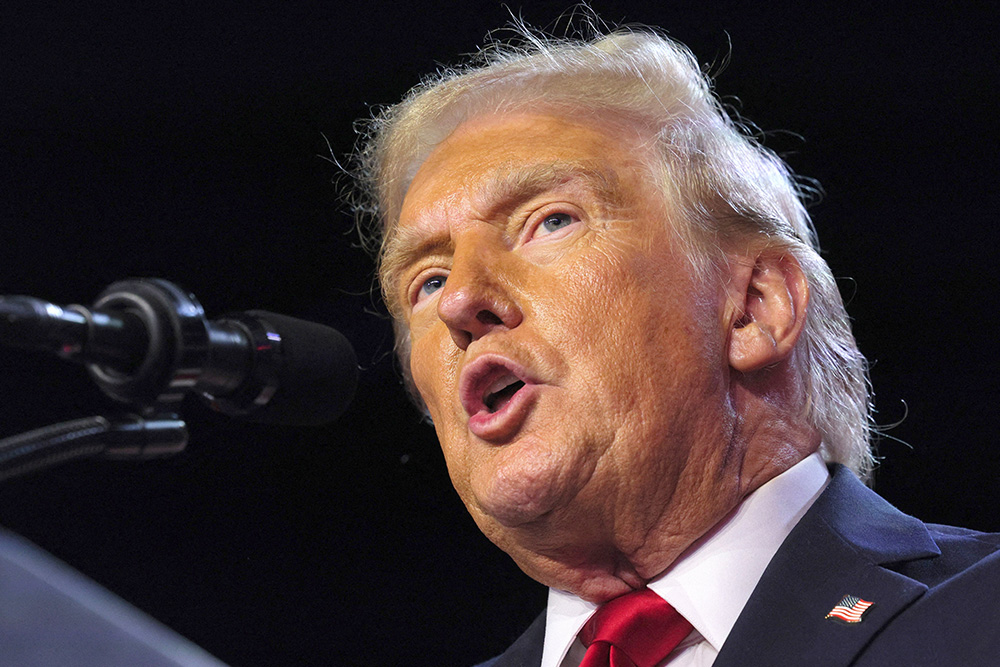
Kentucky Bishop John Stowe has expressed his “dismay” over the overwhelming Catholic voter support for Donald Trump, insisting the U.S. Bishops should have warned Americans about the “danger” of the election.
Stowe, a well-known liberal prelate, said the bishops should have issued a public statement of disagreement with Trump’s policies following the election, the way they did in the case of Joe Biden four years ago.
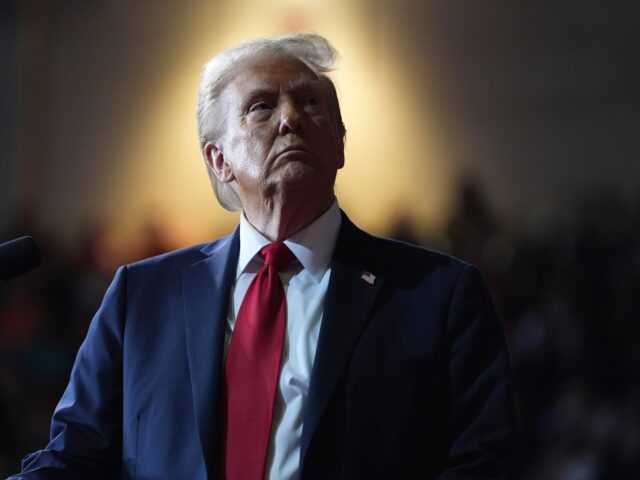
There is the issue of Trump’s character, Stowe told Crux, an online Catholic news service, “and when somebody has such a flawed character that has been manifestly obvious throughout his previous presidency and the time in between, even denying the reality of the previous election, I think we have a responsibility to name the issue, and the issue is the person in this case.”
In 2021, Stowe defended President Joe Biden’s support for abortion, arguing that “it is a complex issue for a responsible Catholic officeholder who recognizes the law of the land and must survive within the dynamics of a political party, believing what the Church teaches, but unclear as to how that should relate to the law.”
He went on to compare support for abortion to “the cruel exclusion of refugees and desperate migrants.”

“How can you follow Jesus and be unrepentant about systemic racism, unwelcoming to the alien and stranger, unmoved by the needs of the poor or uninterested in the common good?” he asked.
On the other hand, Stowe has had only censure for Donald Trump and his supporters, contending that “for this president to call himself pro-life, and for anybody to back him because of claims of being pro-life, is almost willful ignorance.”
“I find it disappointing that our Church did not speak out more forcefully about the danger of this election,” the bishop stated, suggesting that the bishops’ conference should update its voting guide, which currently places too much emphasis on the issue of abortion.
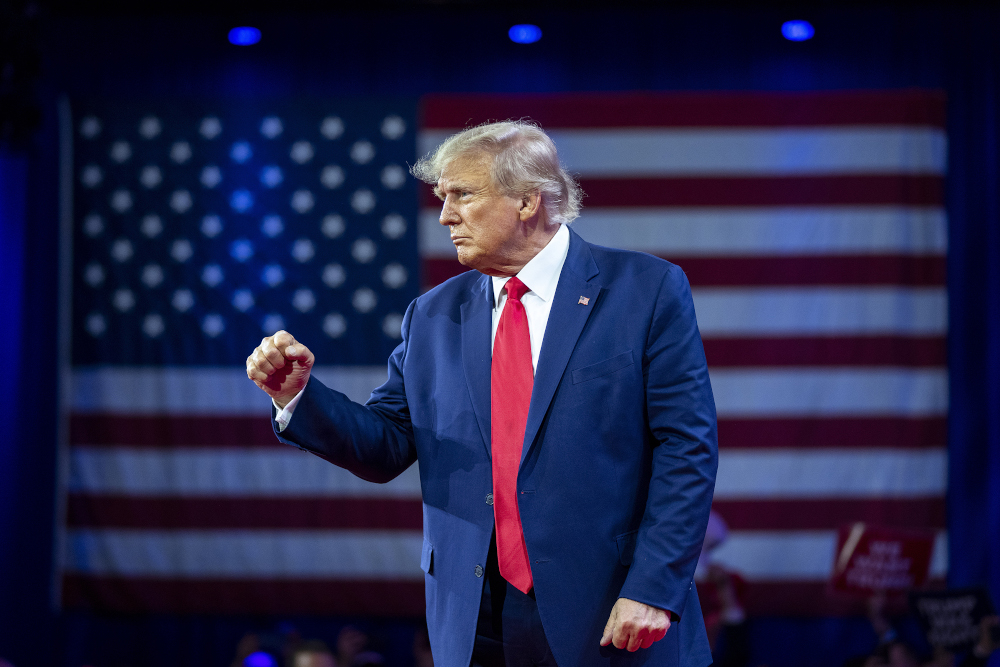
As Breitbart News has reported, Donald Trump won the Catholic vote in the recent election by a massive 15-point margin, according to exit polls.
While Trump and running mate JD Vance — a convert to Catholicism — actively reached out to Catholic voters during the campaign, Kamala Harris often seemed hostile to Catholic interests.
In late October, Donald Trump stated that Kamala Harris had “lost the Catholic vote,” noting her poor polling numbers among Catholics, a demographic that acts as a reliable bellwether of the election results.
Kamala’s “persecution of the Catholic Church is unprecedented!” Trump wrote on Truth Social, underscoring her support of late-term abortion, “and even execution after birth,” which the majority of Americans oppose.

For her part, former U.S. Ambassador Callista Gingrich had described Kamala Harris as “the anti-Catholic candidate.”
Harris’s snub of the Alfred E. Smith Catholic charity dinner in New York was just the latest evidence of her “disdain for Catholics,” Gingrich wrote.
Kamala “declined the invitation to attend the Al Smith Dinner, the first presidential candidate to do so since Walter Mondale in 1984,” Gingrich noted. “Instead, she sent in a pre-recorded video message.”
CatholicVote.org president Brian Burch called Trump’s Victory “historic,” noting that “Catholic voters played a decisive role in the historic victory of Donald Trump and J.D. Vance, with some exit polls suggesting Trump defeated Harris among Catholics by a 14 point margin.”
“These numbers are shocking,” he said, “and could prove to be the largest margin among Catholics in a presidential race in decades. Catholics proved again to be a critical voting bloc that cannot be ignored.”
“Catholics are increasingly attracted by the agenda of the new right, popularized by Trump, which combines family-first social policies with America-first economic priorities,” he added.
Trump names ICE chief and makes another round of immigration announcements

The president-elect is planning an ambitious immigration agenda during his first 100 days.
President-elect Donald Trump on Thursday night announced a new round of nominees and appointments to tackle his aggressive immigration and homeland security agenda.
Trump said he was nominating Rodney Scott as commissioner of Customs and Border Protection. Scott served for almost three decades in the Border Patrol, and as the chief of the agency during the last year of the Trump administration and beginning of the Biden administration. He helped implement Trump’s Remain in Mexico Policy, Title 42 and Safe Third Country agreements.

Trump also announced he was tapping Caleb Vitello, who’s currently the assistant director of the Office of Firearms and Tactical Programs in Immigration and Customs Enforcement, to serve as acting director of ICE.
And the president-elect picked Tony Salisbury, who serves as the special agent in charge for ICE Homeland Security Investigations in Miami, to serve as the deputy homeland security adviser on the White House Homeland Security Council. Brandon Judd, the president of the National Border Patrol Council, which represents more than 17,000 Border Patrol Agents and support staff, was also announced as Trump’s nominee to be ambassador to Chile.
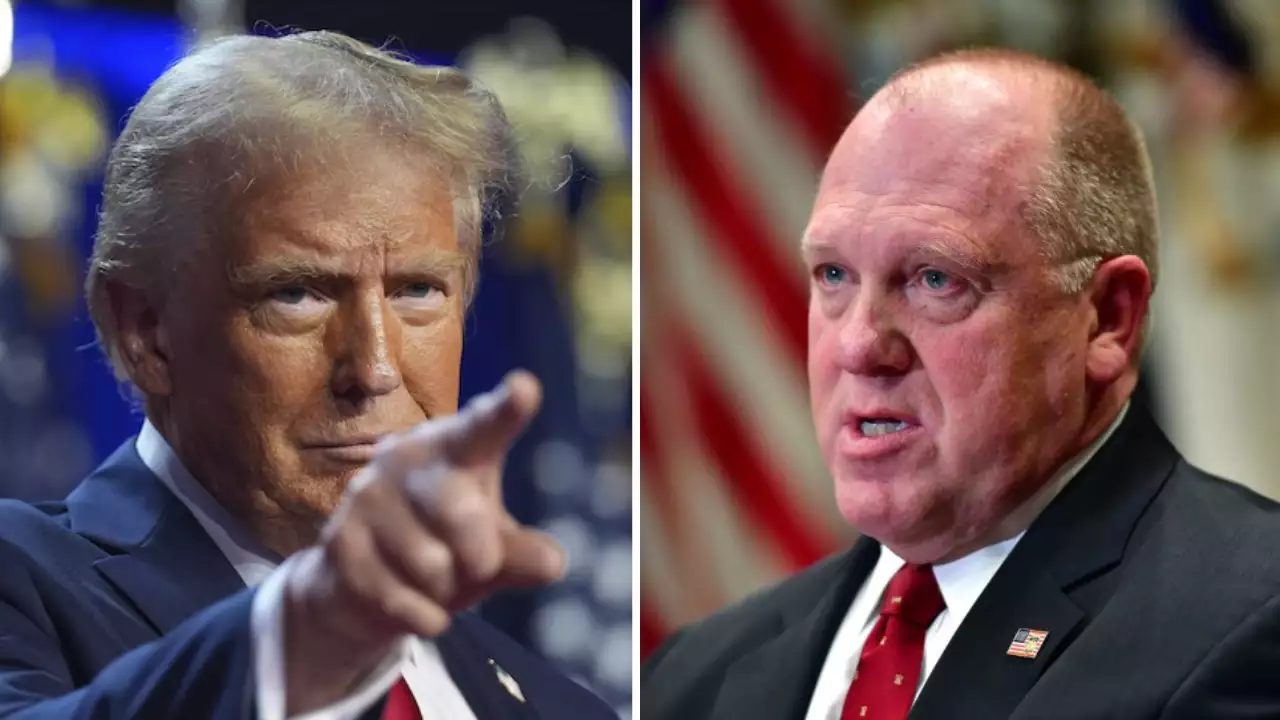
Immigration was Trump’s top priority on the campaign trail, and in his first 100 days he plans to begin the process of deporting hundreds of thousands of people and to roll back President Joe Biden’s immigration policies. Outside allies expect the administration’s immigration policy, similar to Trump’s first term, to be run out of the White House by incoming Border Czar Tom Homan and Stephen Miller, deputy chief of staff for policy and homeland security adviser.
Trump picks David Perdue to be ambassador to China

Donald Trump has selected former Georgia Sen. David Perdue to serve as ambassador to China.
Perdue has significant business experience in Asia, including China, something he ran on during his Senate election in 2014. As the former CEO of Dollar General and a top executive at Sara Lee and Reebok, Perdue was responsible for significant corporate restructuring and global expansion, and has lived in both Singapore and Hong Kong.
In a post on Truth Social late Thursday, Trump highlighted Perdue’s extensive background working in Asia and noted his service on the Armed Services Committee and the Foreign Relations Committee while in the Senate.

“He will be instrumental in implementing my strategy to maintain Peace in the region, and a productive working relationship with China’s leaders,” Trump said in a post on Truth Social, in which he also called Perdue a “loyal supporter” and “friend.”
After being elected in 2014, Perdue served one term in the Senate, where he earned a reputation for his fiscal conservatism and backing pro-business policies. He lost his reelection bid in a 2021 runoff against Democrat Jon Osoff.
Trump recruited Perdue to run for Georgia governor in 2022 against incumbent Republican Brian Kemp, who Trump wanted to punish for his decision to certify the 2020 election results. Perdue lost his primary bid in a landslide, a result that was widely regarded as demonstrating the limits of Trump’s political power.

In his business career, Perdue was a strong proponent of moving jobs from the U.S. to Asia to save on manufacturing costs, a practice seemingly at odds with Trump’s America First policy and something that dogged him on the campaign trail.
Trump recently threatened to impose an additional 10 percent tariff on Chinese goods if the country doesn’t do more to stop fentanyl trafficking.
“Representatives of China told me that they would institute their maximum penalty, that of death, for any drug dealers caught doing this but, unfortunately, they never followed through,” Trump wrote on Truth Social late last month.
Obama calls political ‘divisiveness’ one of the ‘greatest challenges of our time’
CHICAGO — Former President Barack Obama called out divisiveness and polarization as “one of the greatest challenges of our time,” as he avoided any specific political references in his first public remarks since the election.
In a speech Thursday at his foundation’s Democracy Forum, Obama urged his audience to embrace pluralism and celebrate people’s differences – the closest he came to a political message in his remarks.

“It’s about recognizing that in a democracy, power comes from forging alliances and building coalitions… not only for the woke, but also for the waking,” Obama told the crowd of about 650 participants at the Obama Foundation event on Chicago’s South Side, just a few miles from where Obama’s presidential center is under construction.
Obama didn’t utter the names of Donald Trump or Kamala Harris in remarks that ran about 45 minutes, and his nonprofit organization stays away from politics. But Obama’s underlying message about pluralism and building bridges across divides has obvious relevance to the political moment in a divided country.
“Building bridges is not contrary to equality and social justice. In fact, it is our best tool for delivering lasting change,” Obama told the crowd that included Obama Foundation CEO Valerie Jarrett, who worked in his administration and Penny Pritzker, the Commerce secretary during his administration.

A few folks in the predominantly Democratic crowd of political and policy wonks nodded at Obama’s remarks of extending a hand across the aisle, though most sat stoically as Obama spoke.
The former president said he understands the “skepticism… But to produce free and fair and more just societies, I cannot think of a better time to talk about it,” he said of the post-election malaise.
Obama said there are still lines that can’t be crossed — such as when the other side uses “the judiciary or criminal justice system to go after opponents,” he said, hinting at Trump’s threats to go after his enemies.
“In those circumstances, a line has been crossed,and we have to stand firm and speak out and organize and mobilize as forcefully as we can,” he said.
Obama also invoked Martin Luther King Jr., Gandhi and Nelson Mandela, saying pluralism or trying to work with the other side isn’t about “holding hands and singing kumbaya” or “abandoning your convictions.”
The former president said, “If you want to create lasting change, you have to find ways to practice addition rather than subtraction.”
Bahamas rejects Trump proposal to take in deported migrants
President-elect reportedly plans to send people to countries they have no ties to as part of his attack on immigration
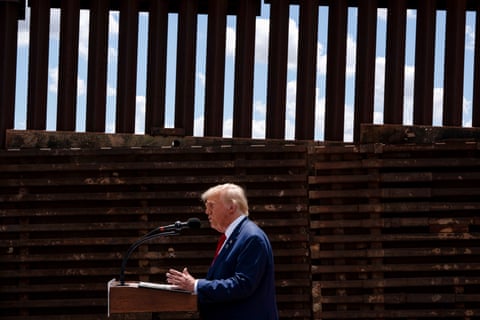
The Bahamas has rejected a proposal from the incoming Trump administration to take in deported people, as the president-elect seeks to follow up on pledges to slash immigration.
Donald Trump’s team has drawn up a list of countries to which it wants to deport migrants when their home countries refuse to accept them, according to NBC News.
But the Bahamas said it had “reviewed and firmly rejected” the plan.
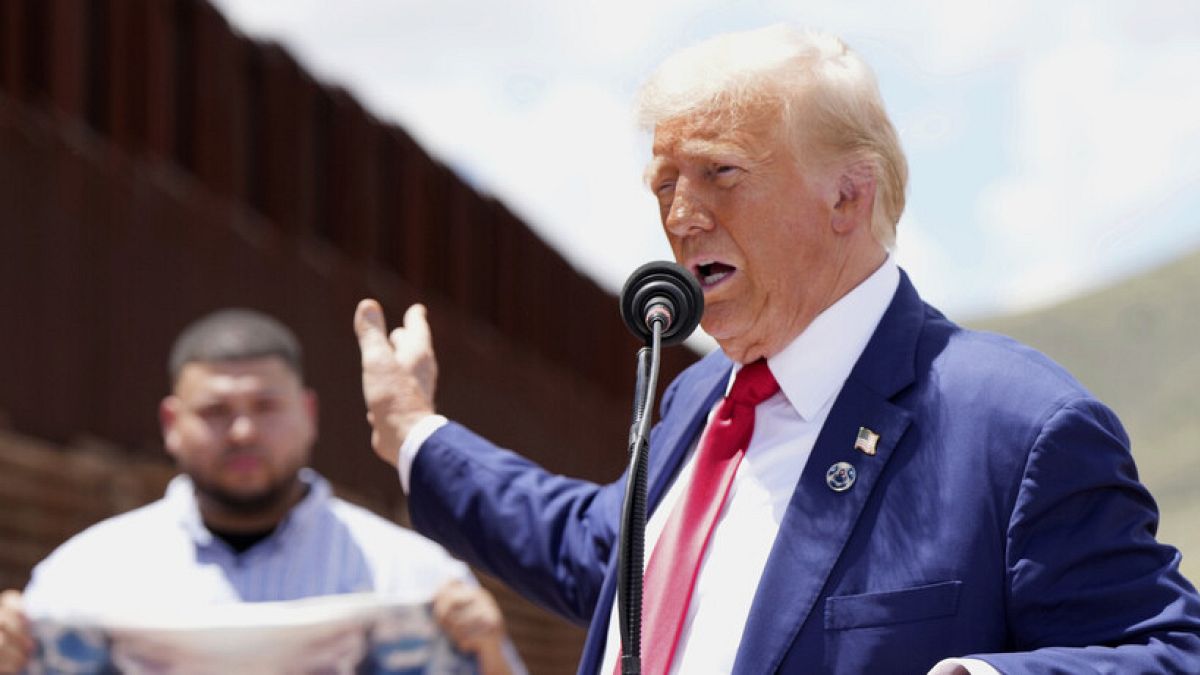
Prime Minister Philip Davis’s office said his government had received a proposal from the Trump transition team “to accept deportation flights of migrants from other countries”.
“Since the prime minister’s rejection of this proposal, there has been no further engagement or discussions with the Trump transition team,” the statement added.
Other countries that Trump is considering include Turks and Caicos, Panama, and Grenada, sources told NBC.
The president-elect based his successful White House run on vicious anti-immigrant rhetoric, blaming them for a supposed national crime wave and promising to carry out mass deportations.
Trump’s team made no immediate comment on Thursday about the Bahamas’ rejection of the proposal, which appeared to reveal one part of how he plans to enact radical immigration reform when in office.

The deportation plan could mean that people are permanently displaced in countries to which they have no links.
It is not clear if the deported people would be allowed to work – or what pressure Trump may apply to get countries to agree, NBC reported.
The US government has struggled for years to manage its southern border with Mexico, and Trump on the campaign trail targeted voters by claiming an “invasion” is under way by migrants he says will rape and murder Americans.
At rallies, Trump repeatedly railed against undocumented immigrants, attacking those who “poison the blood” of the United States.
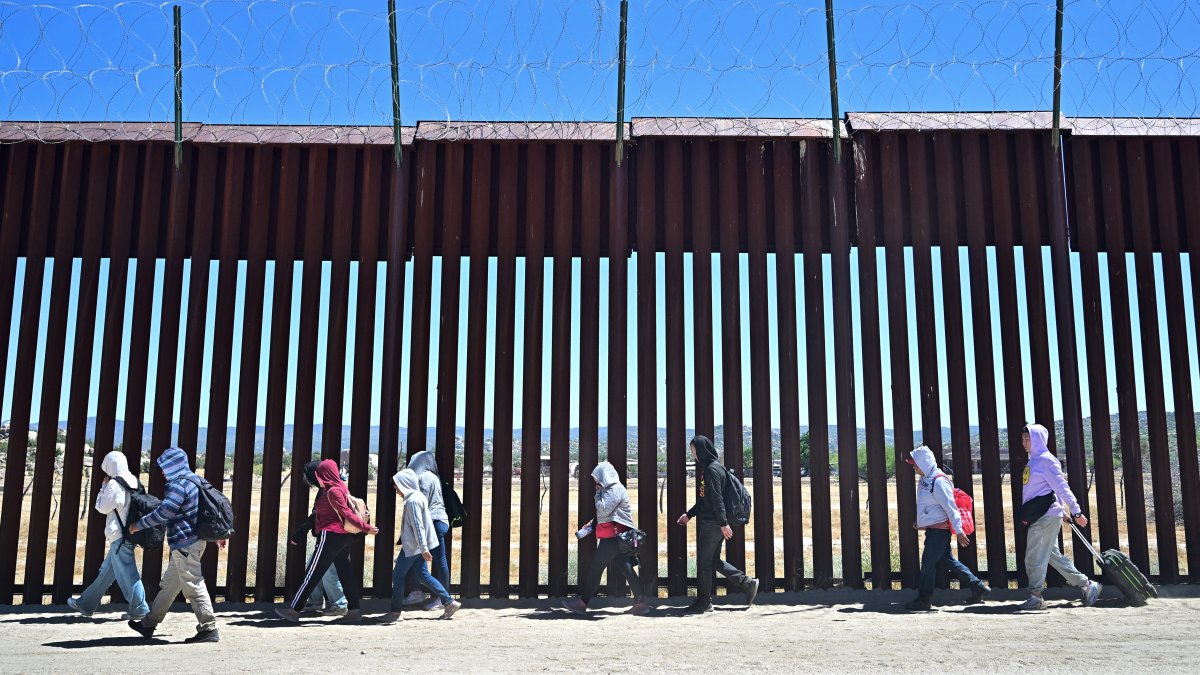
He has vowed to tackle migrant gangs using the Alien Enemies Act of 1798 – which allows the federal government to round up and deport foreigners belonging to enemy countries.
Trump also promoted the fictitious story that Haitian migrants in Springfield, Ohio, were eating residents’ pets.
The incoming president last month said he was bringing back the hardline immigration official Tom Homan to oversee the country’s borders.
Homan led immigration enforcement during part of Trump’s first administration.
A British plan to deport its asylum seekers to Rwanda was dropped earlier this year when the Labour party took power under Keir Starmer after ousting the Conservatives.
Secret Service communications broke down before Trump shooting, inquiry finds
Secret Service and police failed to relay concerns while agency also guarded Kamala Harris in same state that day
An internal Secret Service investigation has confirmed that multiple, substantial communication breakdowns preceded the 13 July attempted assassination of Donald Trump in Butler, Pennsylvania.
The Washington Post, citing unnamed officials, reported on Saturday that the former president’s security detail failed to direct local police to secure the roof of the building used by the gunman.
The Secret Service had discussed placing heavy equipment and flags between the stage and what would become Thomas Matthew Crooks’s perch
atop a glass factory 300ft away to block the clear sight lines from the roof.
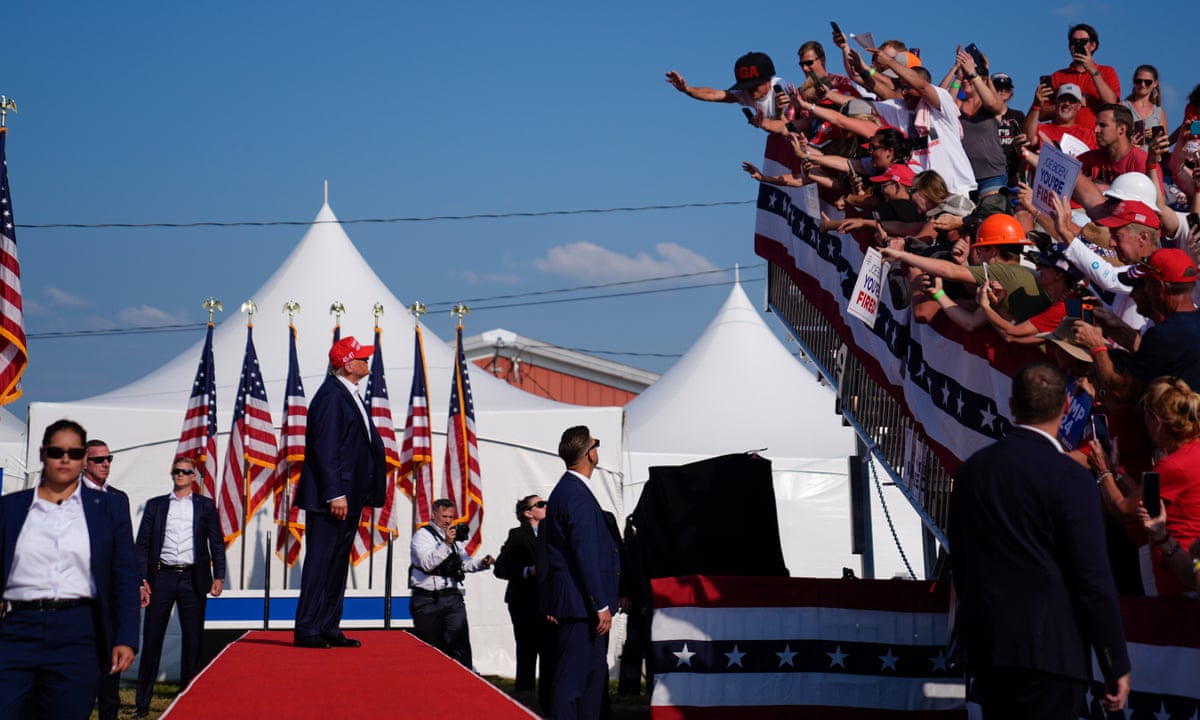
But supervisors who arrived at Butler for the rally found cranes, trucks and flags were not placed in a way that blocked the line of sight.
Crook was later able to climb on to the roof and fire a rifle seven times, killing one spectator, wounding Trump in the ear and injuring two others, before being shot dead by Secret Service snipers.
The internal inquiry, known as a mission assurance investigation, found that unlike security details guarding a sitting president and vice-president that have military support, the Secret Service uses a command post separate from local police to protect political figures who are not serving in office.
But in Butler, Trump’s security detail had no way of communicating with local police guarding the perimeter of the fairground.
The astonishing lack of communication led to Crooks being able to get on the roof despite reports of a suspicious person carrying a rangefinder an hour before Trump was due to speak that were not relayed to the Secret Service. It took rally-goers to alert local police to a man “bear-crawling” on the roof before he loosed off shots at the former president, with one clipping Trump’s ear.
Instead, local countersnipers were instructed to text a photo of Crooks to just one Secret Service agent, and agents never heard local police radio traffic about trying to track him down. Butler county police also reportedly warned the Secret Service that they would not be able to post a patrol car next to the building but received no further instruction.

Kimberly Cheatle resigned as director of the agency days after the shooting after saying the roof’s slope was too steep for agents to manage. The acting agency director, Ronald Rowe, said in a statement to the outlet that “the Secret Service cannot operate under the paradox of ‘zero fail mission’ while also making our special agents and uniformed division officers execute a very critical national security mission by doing more with less”.
The report also found that the Secret Service had been slow to beef up Trump’s security even after it received reports of an Iranian plot to kill political candidates. Rowe testified to Congress later in July that he was “embarrassed” by security lapses and vowed to reform the agency’s practices. Two separate congressional investigations are also looking at security lapses.
The Trump campaign has said it has sometimes been forced to cancel or postpone events over concerns that security is insufficient and followed years of requests from Trump aides for greater security. Both the first lady, Jill Biden, and the vice-president, Kamala Harris, were in Pennsylvania that day, lending credence to claims that the Secret Service was stretched too thin.
“I think the American people are going to be shocked, astonished and appalled by what we will report to them about the failures by the Secret Service in this assassination attempt on the former president,” the Democratic senator Richard Blumenthal told Fox News after being briefed on the internal review.
